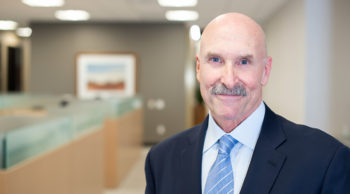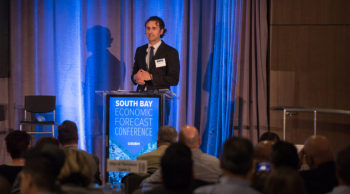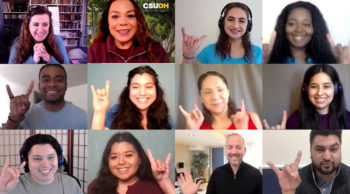The College of Business Administration and Public Policy's new School of Public Service and Justice has named its first director - C. Augustus “Gus” Martin, professor of criminal justice administration. A nationally recognized expert on terrorism, homeland security, and criminal justice, Martin has been with the university since 2001. He has served CSUDH in a variety of roles, including associate vice president for faculty affairs and associate vice president for human resources management. Martin has authored several books on terrorism, including Understanding Terrorism: Challenges, Perspectives, and Issues, now in its seventh edition (2020), and Understanding Homeland Security, now in ... Read More
College of Business Administration and Public Policy
CSUDH Alum Donates Historic Gift
With a $700,000 donation to CSUDH, Doug Le Bon made university history for donating the largest gift to CSUDH from a living alum. Le Bon, who earned two business degrees from CSUDH, a BS in Business Administration (1976) and an MBA (1979), is the co-founder and senior managing director of Pathway Capital Management, one of world's most successful private markets investment firms, managing over $85 billion in assets. Remembering his days as a student driving a soft drink delivery truck around the South Bay, he said he was motivated to give to the university to help reduce the financial barriers students today face in pursuit of their education. “I think it can be really difficult now ... Read More
Fynnwin Prager’s Influenza Economic Research Pays Dividends During COVID-19
Fynnwin Prager is an expert on the economic repercussions of epidemics and pandemics. In the article, Prager draws parallels between the study he co-published in 2016, “Total Economic Consequences of an Influenza Outbreak” and recent economic predictions about COVID-19. He also touches on economic and business resilience, the need for better support for communities of lower socio-economic status during health crisis, and a new research partnership with colleagues at USC CREATE and ImageCAT that uses satellite-imaging data to explore various economic factors related to COVID-19. In 2016, Fynnwin Prager, associate professor of Public Administration at CSUDH, co-published the study the ... Read More
Professor for a Day Aces the Virtual Format
While it is hard to compete with in-person instruction, the lectures delivered by CSUDH alumni during the annual Professor for a Day event on March 15-18 offered a unique glimpse at how faculty can work with guest lecturers to elevate engagement in the virtual classroom. Organized by CSUDH's Office of Alumni Relations, Professor for a Day (PFAD) pairs each alumna/us with classes that match their fields. Since its launch eight years ago, and despite the challenges of navigating the virtual space during COVID-19, the popularity of PFAD has continued to grow. This year, a large pool of alumni from diverse industries served as honorary professors over several days, including several ... Read More
CSUDH Student Turns Hobby into Start-Up Business
When the COVID-19 lockdown first took effect in March 2020, CSUDH student Alexandra Carrasco suddenly found herself stuck at home with a lot of extra time on her hands. She decided to put that time to good use, building a customized computer keyboard for herself. In the months since, she's been able to turn those skills into a fledgling business, creating custom keyboards for clients by hand. Carrasco, a junior majoring in business administration with an entrepreneurship concentration, first became interested in “mechanical keyboards” when she was still in high school. “Mechanical keyboards have a physical switch in them,” Carrasco explains, “so when you press it, it actually hits a ... Read More




